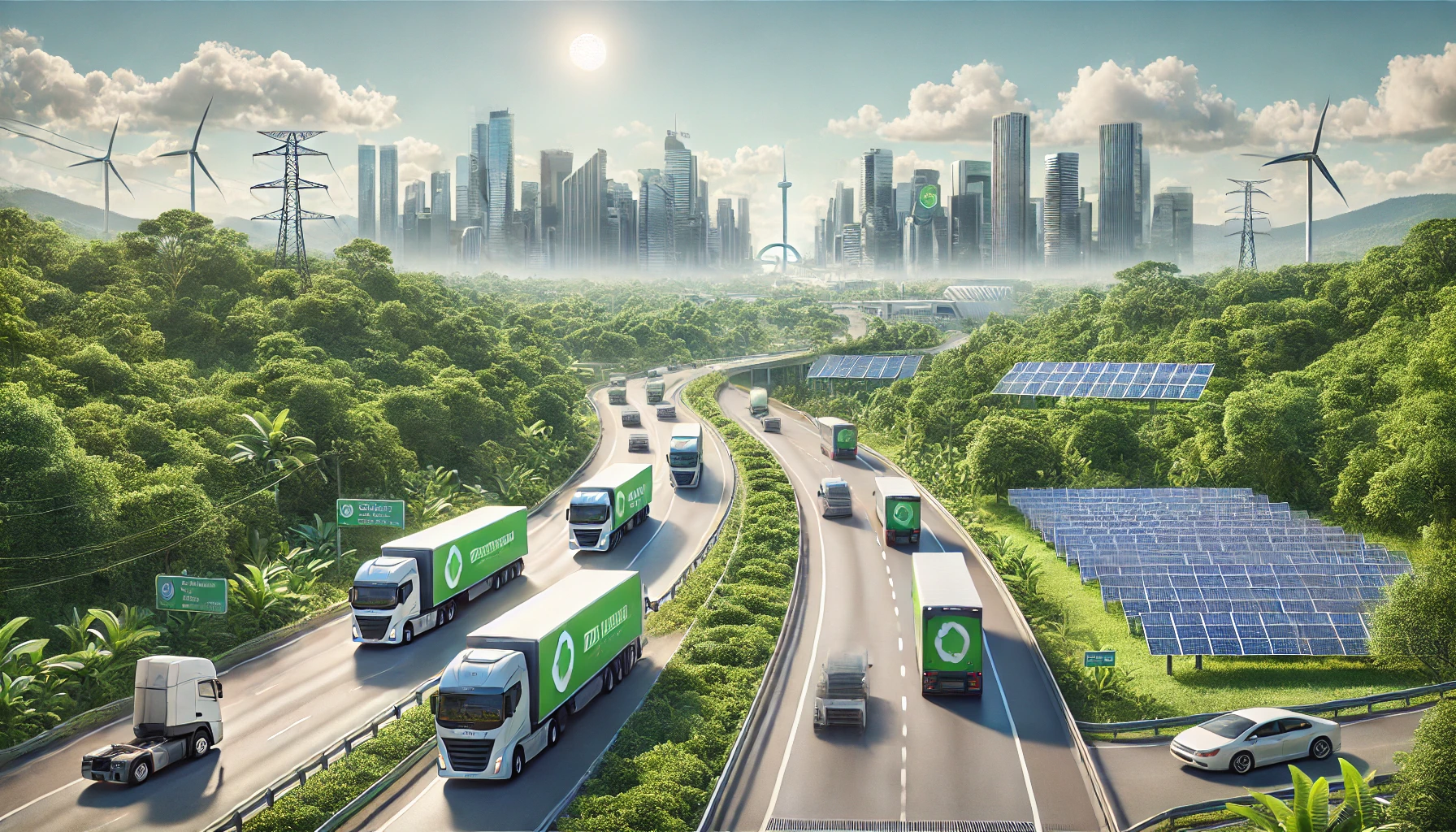Fuel Price Increases and Emission Reductions: Brazil’s Strategy for a Greener Future
The World Bank study finds that raising diesel prices can significantly reduce Brazil's transportation emissions, with a long-term elasticity of -2.06. The research highlights diesel's key role in decarbonization, alongside biofuels and clean energy policies.

A recent paper published by the World Bank's Macroeconomics, Trade, and Investment Global Practice and the Africa Region, authored by Ayan Qu, examines the role of fuel price increases as a tool for reducing emission intensity in Brazil’s transportation sector. Using data from 2010 to 2020 and conducting a panel analysis across Brazil's federative units, the study explores how changes in fuel prices primarily focusing on diesel can act as proxies for carbon taxes and contribute to the country's decarbonization efforts. The paper finds that even a marginal increase in fuel prices, particularly diesel, has a significant impact on lowering emission intensity. This is particularly relevant for Brazil, where transportation is a major contributor to greenhouse gas (GHG) emissions, accounting for nearly half of the emissions from energy consumption. Diesel, widely used in heavy vehicles like trucks and buses, emerges as the most influential factor in emission reductions, with short-term and long-term elasticities calculated at -0.74 and -2.06, respectively. This means that in the long run, a 1% increase in diesel prices could lead to a more than 2% reduction in emission intensity. These findings underscore the importance of diesel price adjustments in addressing Brazil's climate goals.
Brazil’s Biofuels: A Double-Edged Sword
Brazil has been a global leader in the use of biofuels like ethanol and biodiesel, largely produced from sugarcane and soybeans. These biofuels have lower emission factors than fossil fuels, but their impact on reducing emissions in the transportation sector is somewhat limited compared to the effect of diesel price increases. Ethanol, for example, is commonly used in Brazil's flex-fuel vehicles, which can run on a mixture of gasoline and ethanol. However, the study suggests that ethanol's environmental benefits are mitigated by its substitution effect with gasoline. When ethanol prices rise, consumers tend to switch back to gasoline, which diminishes the overall reduction in emissions. Despite this, the biofuel market has contributed positively to Brazil's economy, particularly by enhancing the incomes of agricultural producers in less developed regions, thereby helping to bridge the income gap between the agricultural and energy sectors. The demand for crops like sugarcane and soybeans, used to produce biofuels, has grown steadily, particularly since the introduction of biodiesel in the mid-2000s.
Tackling Brazil’s Climate Inequality
The research highlights significant internal disparities within Brazil in terms of both emissions and fuel prices. The country’s wealthier regions, such as the Southeast, tend to emit more GHGs but enjoy lower fuel prices, while poorer regions in the North and Northeast face higher fuel costs. This disparity raises concerns about climate inequality, where the least developed areas, which contribute the least to emissions, bear the brunt of higher fuel costs and potential climate damages. The study argues that policies like a carbon tax could help address this imbalance by increasing fuel costs in high-income, high-emission regions. Such a measure could also incentivize the use of cleaner technologies and alternative energy sources, thereby reducing the country's overall emission intensity.
The Role of Technological and Policy Advancements
The analysis also delves into the broader factors influencing fuel consumption and emissions in Brazil. Beyond price, technological advancements and government policies play crucial roles. Brazil has long been a pioneer in the production of ethanol, dating back to the 1970s with the launch of the Pró-Álcool program, which promoted ethanol as an alternative to gasoline. This initiative, along with subsequent innovations such as flex-fuel vehicle technology and tax exemptions for biofuels, has helped increase the use of ethanol in Brazil’s transportation sector. More recently, the RenovaBio policy, introduced in 2017, set mandatory targets for reducing the carbon intensity of Brazil’s fuel matrix, further encouraging the use of biofuels and promoting the certification of efficient biofuel production processes. However, despite these efforts, the transportation sector remains heavily reliant on fossil fuels, particularly diesel and gasoline, which continue to dominate the market.
Increasing Diesel Prices to Curb Emissions
The findings of the study suggest that increasing diesel prices through taxes could be a highly effective strategy for reducing emission intensity in Brazil’s transportation sector. A R$1 increase in the price of diesel, for example, could reduce emission intensity by an estimated 20 tons of CO2 equivalent per million real income. In the long term, this could translate into a significant reduction in overall emissions, particularly as higher fuel prices encourage the adoption of cleaner, more efficient technologies. The study also reveals that emission intensity in Brazil is highly elastic to fuel prices, meaning that even small changes in price can have substantial long-term effects on emissions. This elasticity is particularly pronounced in the case of diesel, which is used predominantly in commercial and industrial sectors that are more responsive to price signals than individual consumers.
The Pandemic’s Impact on Emission Trends
The paper also takes into account external shocks, such as the COVID-19 pandemic, which had a notable impact on emission intensity in 2020. The pandemic led to reduced transportation activity, which in turn contributed to a decrease in emissions. However, the study emphasizes that fuel prices remain the most significant factor in determining long-term emission trends. Overall, the research provides robust evidence in favor of using fuel price adjustments, particularly for diesel, as a means to achieve Brazil’s climate goals. The study’s insights are particularly valuable for policymakers seeking to balance economic development with environmental sustainability, especially in a country as geographically and economically diverse as Brazil.
- FIRST PUBLISHED IN:
- Devdiscourse










